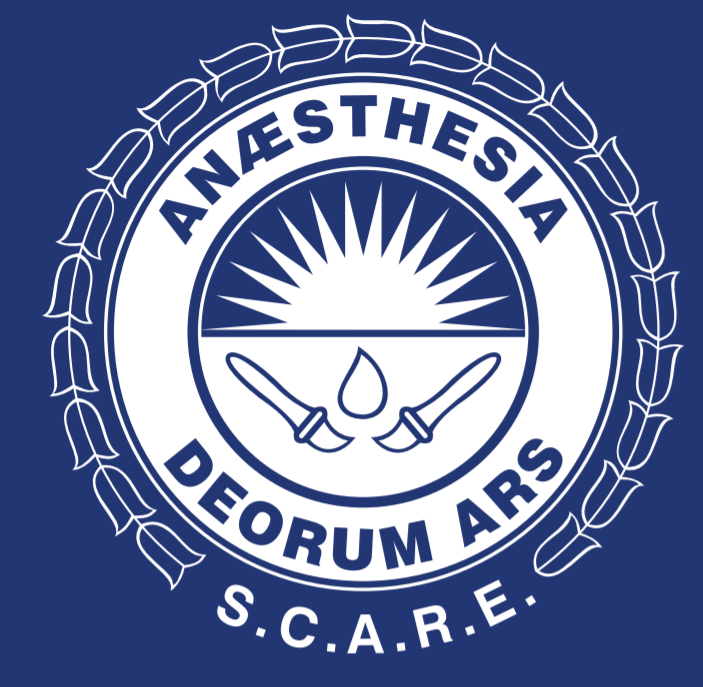Satisfaction survey after an ERAS (Enhanced Recovery After Surgery) protocol in colorectal elective surgery in patients over 70 years of age
Abstract
Introduction:
Enhanced Recovery After Surgery (ERAS) programs have been shown to reduce hospital stay, without increasing the rate of complications or readmissions 30 days after discharge; however, there is limited information about patient satisfaction.
Objective:
To determine the satisfaction of our patients following the implementation of an ERAS protocol in elective colorectal surgery.
Materials and methods:
A period of 4 days after discharge, a telephone survey was conducted based on the enhanced recovery in abdominal surgery clinical survey of the first 55 patients aged 70 years or older, who underwent elective colorectal surgery according to an ERAS protocol at the Hospital Universitario de Guadalajara, Spain. This is a cross-sectional analytical study.
Results:
Most of our patients are very satisfied with the care and the way they were treated by the health staff during their hospitalization, and they would be willing to undergo surgery again following this protocol. Most of them consider that the information received in the pre-anesthesia and surgery consultation is very good, and they value this consultation as one of the most positive aspects of the protocol. More than half of the patients did not experience any nausea or vomiting and rated their pain as <3 (minimum 0 and maximum 10). Most considered the introduction of oral feeding and ambulation as on time or somewhat early.
Conclusion:
Elderly patients undergoing elective colorectal surgery according to an ERAS protocol are highly pleased with the care received. Standardized surveys are required to be able to contrast outcomes.
References
2. Muller S, Zalunardo MP, Hubner M, et al. Zurich Fast Track Study GroupA fast-track program reduces complications and length of hospital stay after open colonic surgery. Gastroenterology 2009; 136:842-847.
3. Kehlet H, Wilmore DW. Fast-track surgery. Br J Surg 2005;92:3-4.
4. Lovely JK, Maxson PM, Jacob AK, et al. Case-matched series of enhanced versus standard recovery pathway in minimally invasive colorectal surgery. Br J Surg 2012;99:120-126.
5. Martin TD, Lorenz T, Ferraro J, et al. Newly implemented enhanced recovery pathway positively impacts hospital length of stay. Surg Endosc 2016;30:4019-4028.
6. ERAS Compliance GroupThe impact of Enhanced Recovery Protocol Compliance on elective colorectal cancer resection. Results from an international Registry. Ann Surg 2015;261:1153-1159.
7. Kisialeuski M, Pedziwiatr M, Mattok M, et al. Enhanced recovery after colorectal surgery in elderly patients. Wideochir Inne Tech Maloinwazyjne 2015;10:30-36.
8. Polle SW, Wind J, Fuhring JW, et al. Implementation of a fast-track perioperative care program: what are the difficulties? Dig Surg 2007;24:441-449.
9. Wang H, Zhu D, Liang L, et al. Short-term quality of life in patients undergoing colonic surgery using enhanced recovery after surgery program versus conventional perioperative management. Qual Life Res 2015;24:2663-2670.
10. Mohn A, Bernardshaw S, Ristesund S, et al. Enhanced recovery after colorectal surgery. Results from a prospective observational two-centre study. Scand J Surg 2009;98:155-159.
11. Ripolles-Melchor J, Casans-Frances R, Abad-Gurumeta A, Grupo Español de Rehabilitación Multimodal y Evidende Anesthesia Review Group (EAR). Spanish survey on enhanced recovery after surgery. Rev Esp Anestesiol Reanim 2016;63:376-383.
12. Gustafsson UO, Hausel J, Thorell A, et al. Enhanced Recovery After Surgery Study GroupAdherence to the enhanced recovery after surgery protocol and outcomes after colorectal cancer surgery. Arch Surg 2011;146:571-577.
13. Khan S, Wilson T, Ahmed J, et al. Quality of life and patient satisfaction with enhanced recovery protocols. Colorectal Dis 2010;12:1175-1182.
14. Spanish Working Group in Abdominal Surgery. Clinical path of recovery intensified in abdominal surgery (RICA). Ministry of Health, Services Social and Equality; Aragonese Institute of Health Sciences 2015. [Cited 2017 Aug 28]. Available at: http://portal.guiasalud.es/contenidos/iframes/documentos/opbe/2015-07/Vía Clínica-RICA.pdf.
15. Gustafson UO, Scott MJ, Schwenk W, et al. Guidelines for perioperative care in elective colonic surgery: enhanced recovery after surgery (ERAS) Society. Recommendations. World J Surg 2013;37:259-284.
16. Apfel CC, Korttila K, Abdalla M, et al. A factorial trial of six interventions for the prevention of postoperative nausea and vomiting. N Engl J Med 2004;350:2441-2451.
17. Thiele RH, Rea KM, Turrentine FE, et al. Standarization of care: impact of an enhanced recovery protocol on length of stay, complications, and direct costs after colorectal surgery. J Am Coll Surg 2015;220:430-444.
18. Sobin LH, Gospodarowicz MK, Wittekind CH. International Union Against Cancer. TNM classification of malignant tumours. 7th ed. Singapur: Willey-Blackwell; 2009.
19. Li J, Guo BC, Sun LR, et al. TNM staging of colorectal cancer should be reconsidered by T stage weighting. World J Gastroenterol 2014;20:5104-5112.
20. Dindo D, Dermatines N, Clavien PA. Classification of surgical complications: a new proposal with evaluation in a cohort of6336 patients and results of a survey. Ann Surg 2004;240:205-213.
21. Apfel CC, Philip BK, Cakmakkaya OS, et al. Who is at risk for postdischarge nausea and vomiting after ambulatory surgery? Anesthesiology 2012;117:475-486.
22. Patoune A, Coimbra C, Brichant J, et al. Quality of life at home at satisfaction of patient after enhanced recovery protocol of colorectal surgery. Acta Chir Belg 2017;117:176-180.
23. Ronco M, Iona L, Fabbro C, et al. Patient education outcomes in surgery: a systematic review from 2004 to 2010. Int J Evid Based Healthc 2012;10:309-323.
24. Maessen J, Dejong CH, Hausel J, et al. A protocol is not enough to implement an enhanced recovery programme for colorectal resection. Br J Surg 2007;94:224-231.
25. Feldman L, Lawrence MD, Fiore J. What outcomes are important in the assessment of Enhanced Recovery After Surgery (ERAS) pathways? Can J Anesth 2015;62:120-130.
26. Ventham NT, Hughes M, O'Neill S, et al. Systematic review and meta-analysis of continuous local anaesthetic wound infiltration versus epidural analgesia for postoperative pain following abdominal surgery. Br J Surg 2013;100:1280-1289.
27. Levy BF, Tilney HS, Dowson HMP, et al. A systematic review of postoperative analgesia following laparoscopic colorectal surgery. Colorectal Dis 2010;12:5-15.
28. Henriksen MG, Jensen MB, Hansen HV, et al. Enforced mobilization, early oral feeding, and balanced analgesia improve convalescence after colorectal surgery. Nutrition 2002;18:147-152.
29. Wang G, Jiang ZW, Xu J, et al. Fast-track rehabilitation program vs conventional care after colorectal resection: a randomized clinical trial. World J Gastroenterol 2011;17:671-676.
30. Lyon A, Solomon MJ, Harrison JD. A qualitative study assessing the barriers to implementation of enhanced recovery after surgery. Word J Surg 2014;38:1374-1378.
Downloads
Altmetric
| Article metrics | |
|---|---|
| Abstract views | |
| Galley vies | |
| PDF Views | |
| HTML views | |
| Other views | |














